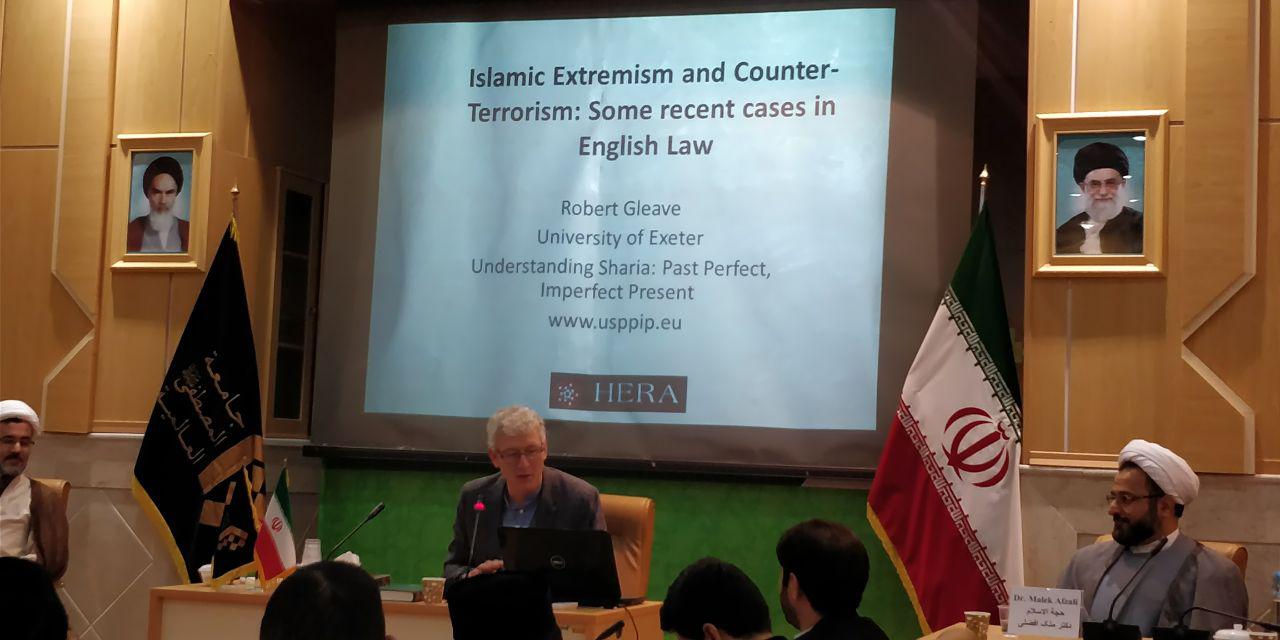
RNA – In an exclusive report from the correspondent of Rasa News Agency, on 7 February a conference entitled “Islam in Europe: Prospects and Challenges” was held by the al-Hikmah Institute at the Imam Khomeyni Higher Education Complex, a branch of al-Mustafa International University, in the Iranian holy city of Qom with the presence of professors and researchers from several European universities and the staff, professors, students and guests of al-Mustafa International University.
The conference was divided into four main axes: 1. The capacities of Islam in interaction with Europe, 2. The perspectives and challenges facing Islam and Europe, 3. The capacity of Europeans to interact with Islam and Muslims, 4. The history of the interaction between Islam and Europeans.
Despite the various challenges facing Muslims in Europe, Islam is known as the second largest religion in Europe. The issue of Islam in Europe, and its various dimensions, has been heavily discussed in recent years. The issue of immigration, Islamophobia, orientalism and the understanding of Islam among Europeans, the coexistence of Muslims and Europeans, the presence of mosques and religious centres of Muslims in Europe, the extremist movements of Muslims in Europe, the spread of Islam among Europeans, the rights of minorities, Muslim services to Europe and other related issues are among the issues discussed in this area.
At the beginning of the conference, in which guests from the Czech Republic, Indonesia, India, the United Kingdom, Canada, the Netherlands and Italy participated, Hujjat al-Islam Dr. Mohsen Malek-Afzali, the head of the al-Hikmah Institute, said, “In past decades, we have witnessed an increase in Islamophobia among followers of other religions, especially in Europe.”
In his opening statements, he referred to several important discourses, such as the rise of Islamophobia in the West, the background of the relations between Muslims and Christians, the attraction of many young people towards Islam in the West, the fear of spreading political Islam and the violent actions of Takfiri groups such as Daesh and the Taliban.
Hujjat al-Islam Malek-Afzali noted that Zionist media propaganda against Islam and the activities of nationalist and xenophobic political parties and personalities are amongst the causes of the creation of Islamophobia.
The Iranian cleric added, “Unfortunately, the violent and extremist Muslims and Islamophobes have not received the message of Islam.”
He said, “I hope that the conference will reach its academic goals and that the professors and students will completely benefit from the papers presented.”
Among the participants and professors who presented their research included Dr. Robert Gleave, a professor of Arabic Studies and the director of the Centre for the Study of Islam at the University of Exeter, the United Kingdom; Dr. Andrew Newman, the personal chair of Islamic Studies and Persian at the University of Edinburgh, the United Kingdom; Dr. Joseph Ellul, a professor in the Faculty of Theology at the Pontifical University of St. Thomas Aquinas, Rome, Italy; Dr. Daniel Křížek, a professor in the Faculty of Philosophy at the University of West Bohemia, Plzeň, Czech Republic.
These and several other several professors from various universities in the Czech Republic and the Netherlands presented papers.
Ayatollah Dr. Mahdi Hadavi-Tehrani, a professor of philosophy and jurisprudence in the Islamic Seminary of Qom, also spoke at the conference about the growth of Islamophobia and Takfiri-Salafi extremism in Europe.
112/920